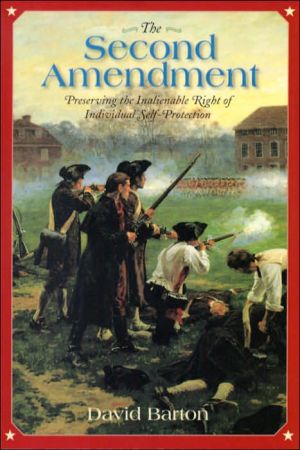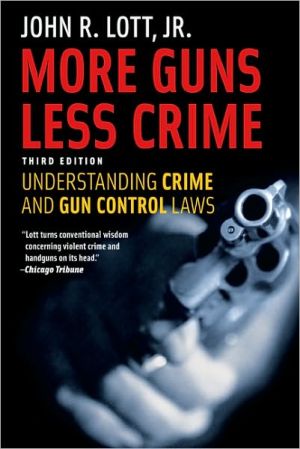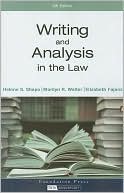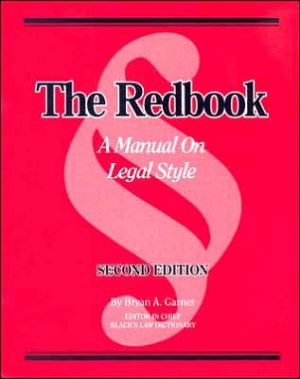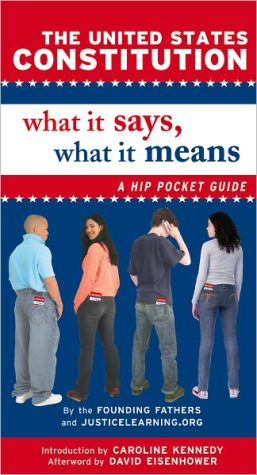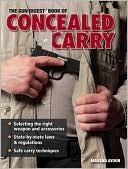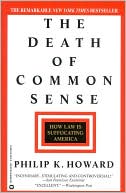The Government vs Erotica: The Siege of Adam and Eve
In 1986, a small mail-order company was invaded by 37 armed law enforcement agents who instantly shut down all operations, herded the employees into a warehouse, and then systematically interrogated everyone, allowing them to leave only after subpoenas were distributed. Although this episode may sound like a police action in the former East Germany, in fact it was implemented by the U.S. Justice Department, then headed by Edwin Meese, against Adam & Eve, a North Carolina business that...
Search in google:
\ \ Chapter One\ \ \ THE RAID\ \ \ I was in New York on the morning of May 29, 1986, when the phone rang. It was just after nine A.M. Ken Miskie, our print production specialist in Carrboro, North Carolina, was talking excitedly. Ken was a man whose voice always seemed a little cautious even in the smoothest of times. Now, reflecting the turmoil going on around him, he reported tensely that thirty or forty law enforcement officers had just raided our business and shut it down, and that all our employees were being interrogated. He and other management and supervisory staff were being held in one room, and a massive sweep of our premises was in process.\ I couldn't believe it. As the principal owner of a company that specialized in sexually oriented merchandise, I knew it was about obscenity, of course. But when the North Carolina obscenity law had been revised and made more restrictive six months before, I had consulted with our local district attorney about the changes in the law. We had gone through the Adam & Eve catalog together, and DA Carl Fox had recommended that we remove certain items, which we had done. Now came this incursion, which was wildly out of proportion to anything we ever had imagined.\ I had already booked a seat on the next flight to Raleigh-Durham. Now I called an attorney, Grainger Barrett, in nearby Chapel Hill, and he was already on his way to the company. Locking the offices of PSI, our budding nonprofit group on the fifteenth floor of an East Fifty-sixth Street office building in Manhattan, I hit the ground running and hailed a cab. Whatwould I find by the time I got to Carrboro? From what Ken had said, it sounded grim.\ Affidavit testimony from some our employees reports what was going on while I was on my way to Raleigh-Durham.\ Affidavit of Shirley Sell:\ \ \ I was working at Adam & Eve on the morning of Thursday, May 29, 1986. At approximately 9:00 A.M., while I was on the telephone with a customer, four or five men came into my work area with some sort of badges ... and one of these men ordered me to hang up the telephone. When I told him I was on the phone with a customer, he said he didn't care and that I should get off or he would hang the phone up, so I hung up on the customer. I did not know who the men were, or what was going on. I felt very badly about hanging up on the customer.\ An announcement was made over the public address system that all employees had to go to the warehouse. I asked the man who had made me get off the phone if there had been a bomb threat, and he said no, that I just had to go to the warehouse. I did not believe that I had any choice, so I went to the warehouse.\ When I arrived at the warehouse, all of the other employees were there. We were told by one of the officers that they had a search warrant. One of the supervisors, Mr. Loy, came in and said that he was not permitted to talk to us, but that the agents did have a search warrant.\ All of the employees and supervisors were told that we had to turn in any concealed weapons, that we would be questioned, that after we were questioned we would be brought to the back door of the warehouse, and that we could not leave the building until we had a [grand jury] subpoena.... There were armed guards at every door, and I was guarded when I went to the restroom. I was not permitted to bring my pocket-book into the stall in the restroom, and had to give it to the female agent who escorted me there.\ \ \ I would learn later that thirty-seven armed law enforcement agents had descended on our premises on Highway 54, seven miles west of Carrboro, North Carolina. The group was comprised of a sheriff and sheriff's deputies from two counties, federal postal inspectors from the Eastern District of North Carolina and from the State of Utah, and agents from the North Carolina State Bureau of Investigation.\ Our reception area at the Carrboro offices was designed to hold eight or ten people, and as the agents poured in, demanding entry to the building, tensions rose. Our receptionist, Jodi Klomser, had instructions not to admit unauthorized visitors unless they asked to see a particular individual, in which case the person would come to the reception area to meet them. But the agents gave her no name; instead, they showed their badges and demanded entry. Jodi recognized Sheriff Lindy Pendergrass of Orange County, who told her they had a search warrant and asked her to get a manager. As she described it:\ \ \ A man in a brown suit stuck his head inside the window between the lobby and my work space and told me to open the door. I said no, just one moment please, and continued to try to find a manager, as Sheriff Pendergrass had requested. As I was concluding my conversation with one of the managers, who said he was on his way, the man in a brown suit said: "You tell him if you do not open the door immediately, we will kick it in." When Skip [the manager] arrived and opened the door, the men in suits swarmed into the building....\ I turned off my switchboard, picked up my purse and locked the file cabinet. I walked to the front lobby to get an applicant's employment form [filled out just moments before the raid began]. I checked the front door to see if it was locked. I found an armed guard looking in, so I was satisfied the door was secure. I went to the warehouse, along with three agents....\ The agents told us to form seven lines, and they asked for all of the managers to go to one group. They told us that we would have to be interviewed, or go before the grand jury. By this time I was very scared.\ I was taken to the lunch room and asked questions.... I believed that I had to answer the questions before I could leave. The agent who interviewed me also gave me a grand jury subpoena.\ After the interview, I was taken back to the warehouse, and one of the agents took my picture and then asked for my driver's license. I was told to leave through the back door, and had to show a Sheriff's deputy guarding the exit my subpoena before I was allowed to leave.\ \ \ Melinda Ruley of the Chapel Hill Independent summed up the day's major events: "By the end of the day, 118 employees had been `processed,' questioned, and photographed. Subpoenas were issued, pocketbooks searched, documents and computer ledgers confiscated. Law enforcement officers ordered employees to turn over their weapons and demanded to see the studio where sex videos were made. `They acted like it was a drug raid, and I guess we were a real disappointment to them,' [said] Skip Loy, director of operations.... `The only weapons people had were their boxcutter knives. And I had to tell the officers, I said, there's no videos produced here. We just got things in boxes.'"\ The operation was described as the "first strike of a federal-state pornography task force." Many members of the raiding party clearly had expected to discover salacious carryings-on, including the production of adult videos, a matter they could easily have disabused themselves of by asking a few questions over the phone. They could also have made an appointment to visit us and received copies of any of our merchandise that they might have wanted. We had nothing to hide. At the time we were mailing more than eight million catalogs that described our sexually oriented merchandise every year to several million households throughout America and would have cheerfully provided both catalogs and any merchandise requested to any bona fide law enforcement person who chose to ask for or buy those items. In summary, there was nothing for this task force to uncover.\ The search went on. Acting on a warrant issued by North Carolina Superior Court Judge Anthony Brannon and a similar federal warrant requested through the state attorney general's office by U.S. Attorney Sam Currin, the agents sealed off all entrances to our plant and went about their work.\ Grainger Barrett, the attorney I had telephoned from New York, was a lawyer who had served for four years as the deputy town attorney and town attorney for Chapel Hill, during which time he was the police attorney, responsible for providing advice to the Chapel Hill Police Department on searches and seizures. He had accompanied the Chapel Hill police on searches on a number of occasions. He provided the following statement in a June 23, 1986, affidavit:\ \ \ I arrived at the company's building on Highway 54 in Carrboro at approximately 10:30 A.M.\ When I arrived at the building, I saw that there were guards posted at all of the doors. I identified myself to the guard at the front door as an attorney for the company and entered the front reception area.\ As I walked through the reception area and into the office area, Postal Inspector Charlton met me at the door. I told Inspector Charlton that I had been asked by the company to go out to the premises, and asked him to take me around briefly so that I could see what the agents were doing, assess the situation, and be in a position to give my clients legal advice. Agent Charlton immediately adopted a confrontational, hostile manner and told me, in substance, [that] they had a valid search warrant and that I was not going to interfere with or impede their search in any way....\ After I arrived, one of the company's supervisors asked me if she could advise the employees that I was present and that they could speak to an attorney if they wished. I told her yes, and gave her some business cards to provide to employees. I felt it important to reassure them that an attorney for the company was in fact now on the premises and of my name. About two minutes later Inspector Charlton came up to me and told me he would not allow my cards to be handed out any further. I told Inspector Charlton that I wanted to let the employees know I was there and to let them know what their legal rights were if they wished this advice. I repeatedly assured him I would advise employees generally to be cooperative and that neither I nor the employees would interfere with or impede their search. Inspector Charlton told me something to the effect that the employees didn't have a right to consult with an attorney since they weren't under arrest, and I asked him if he was saying that persons not under arrest didn't have the right to talk to an attorney. Charlton then said that he didn't have to let me talk to the employees since I wasn't their attorney, but rather the company's attorney. At no time did Inspector Charlton ever permit me to provide legal advice to any of the employees being detained in the warehouse, despite my specific request to be allowed to do this.... I heard one agent tell the employees in the warehouse that if they each talked to an attorney, they would be there all day and everyone would thus be greatly inconvenienced.\ I left the premises of PHE, Inc. [Adam & Eve's corporate name] at approximately 1:30 P.M. At the time I left, there were still at least 10-12 employees being detained in the warehouse. I also was informed prior to leaving that the switchboard had been cut off. During the three hours I was at PHE, Inc., from 10:30 A.M. until 1:30 P.M., none of the employees to my knowledge were allowed to leave the building without being interviewed, searched, photographed, and given a subpoena. All of the employees were restrained in a custodial atmosphere and the search was as intrusive and general a search as I have witnessed. It was clear to me that the majority of employees held there were intimidated, [that they] repeatedly asked whether they were under arrest, and were extremely fearful and apprehensive about what was happening to them. I hope never again to be called upon to provide legal counsel under such distressing circumstances and conduct by Government officials.\ \ \ Shirley Sell:\ \ \ One of [our] supervisors stepped out of the conference room the supervisors were kept in, and announced that some attorneys had arrived. I said to the agent "our attorneys are here, can I speak to an attorney?" The agent said that I could not speak with an attorney, that it was "too late" and that the interview had already begun. I told the agent I was not sure I should be talking to him, and he told me if I had done nothing wrong I should not be concerned about talking to him. I was then asked numerous questions about my job and PHE, Inc. The interview lasted between 20 and 40 minutes.... Had I known that I did not have to give information to the agents, I would not have answered any questions.\ After the postal inspector was through with me, I was taken by the agent back to the warehouse and told to wait in line to have my picture taken.... [T]he agent told me to take my purse to another agent to be searched. I asked why my purse had to be searched, and the agent said, "Because that's what we're going to do." ... None of the employees were allowed to speak to the managers. The agents treated us like criminals, and tried to scare us.\ \ \ By the time I arrived at around four P.M., this drama was largely over. There were still what I thought were two or three unmarked police cars, and one marked "Sheriff," in the parking lot, but the lot was otherwise empty. Our employees, with a few exceptions, had been processed and had gone home. While there were still at least a half dozen federal inspectors on the premises, they weren't being particularly aggressive at the moment. I saw that they had already broken open my desk and gone through its entire contents.\ One of the strongest images I had from the moment I entered the plant was of Denise Long calmly standing at the Xerox machine copying hundreds of financial documents. Denise is a tall, stolid, and utterly unflappable woman who, at the time, was in charge of our company's financial records. The agents had been about to confiscate a great deal of our financial documentation, and to Denise, it was unthinkable that we should not have copies of our own financial data. How could we operate the company without it? I have no doubt that her opinion on this matter was so absolute that the agents acquiesced fairly quickly and permitted her to make the necessary copies. She had been at it, she told me, for nearly two hours and would continue for an hour more.\ Despite these somewhat reassuring images, I was shaking inside, and probably a little bit outside, too. Our corporate persona had been invaded, our privacy torn to shreds by people who presumably despised us and whom we now despised in turn. I now had to confront five or six of these men who, I had now learned, had ridden roughshod over the rights of virtually all our employees. To my surprise, they didn't expect me to give them any information. "I suppose your lawyers won't let you answer any questions," one said. Indeed, by now we had three lawyers present, who had instructed me to give only my name and my position.\ Our offices resembled a battlefield after the battle. Denise stood by her copier, which continued to flash, flash, flash as she compiled the records she felt we absolutely had to have. I got a few more firsthand reports from our vice president, A. C. Bushnell, and from one or two others, arranged to meet our attorney the following morning, and headed home. After a stiff belt of Jack Daniels, I considered what had happened.\ I felt as though I had been shoved off the bank of a river into swirling water with very little to do but hang on, look for help, and grab on to anything that floated. We would be accused of obscenity, that much seemed clear. But there had been no indictments and no arrests. Each of the employees had been issued a subpoena to appear before a federal grand jury in Raleigh a few weeks later. This suggested that we would be indicted by the federal authorities in the Eastern District of North Carolina, which is headquartered in Raleigh. But that was only a possibility, we were advised, as federal postal inspectors from the State of Utah and State Bureau of Investigation agents from North Carolina had also been present. (Why hadn't they consulted with District Attorney Carl Fox? His office had not participated in the raid. He could have told them that I had conferred with him and was making a goodfaith effort to conform with North Carolina's new obscenity law and we could have discussed all this. So what was the reason for the raid?)\ I was furious with the way our employees had been treated, especially in light of the far more civilized treatment that was accorded to me. I was also frightened for our business. Having been treated as they were, I feared that many of our employees simply would not show up for work again. Could we carry on? Our lawyers had been reassuring that we could not be closed down without a trial, that official suspicion of obscenity did not permit the prior restraint of materials like videos, books, and magazines if they had not been found obscene through due process of law. If we could staff our company, therefore, we could probably stay open, which would provide the funds we needed to defend ourselves.\ The following morning, nearly every one of our employees arrived for work. Not only were they there, they were angry. "What right have they got to do that to us?" "No one was breaking any laws!" "Haven't they heard of the First Amendment? Who the hell do they think they are?" I grinned from ear to ear, but partly from embarrassment. I had greatly underestimated these fine people. They didn't like being pushed around by a bunch of bullies any more than I did, and they weren't about to take it lying down.\ \ \ * * *\ \ \ I have never known morale in our company to be higher or productivity better than it was in those next few months. As Melinda Ruley recounted in the Independent, "Skip Loy, director of operations at the plant, is fond of telling how, the day after the raid, all but a handful of employees showed up for work as usual. Even a woman who had been filling out an application when the agents filed in came back, still hoping to be hired. `It's a uniting experience,' Loy says of the legal trouble PHE and Phil Harvey have gone through. `People have suffered through this thing together.'"\ For the next three months we waited anxiously for the other shoe to drop. To prepare for the charges we anticipated and in the hope that we might be able to resolve the issue and avoid an indictment, we began assembling a team of criminal defense attorneys. We were remarkably lucky in this endeavor. While our area of North Carolina did not at the time have a nationally known criminal defense attorney who specialized in obscenity law, I was convinced that, rather than importing them from New York or Ohio, we should retain local lawyers. I learned that a number of distinguished trial lawyers practiced in Raleigh and Chapel Hill, and a team began shaping up quickly. As there are always at least minor conflicts between the interests of individuals and a corporation, we decided that David Rudolf of Chapel Hill would represent PHE, Inc., the parent corporation of Adam & Eve; Wade Smith of Tharrington, Smith, and Hargrove in Raleigh would defend me personally; and Joe Cheshire of Cheshire, Parker, and Hughes in Raleigh would act as cocounsel for the company (and would later defend Peggy Oettinger, our marketing manager). These three attorneys were assisted by Adam Stein of Ferguson, Stein of Chapel Hill and by Wade's colleague Randall Roden.\ None of the lawyers had defended an obscenity case before. But they all came naturally, instinctively, and enthusiastically to our First Amendment case, sharing a deep belief in fundamental freedoms—in the right to speak, to think, to read. They quickly learned the necessary law, and they were a colorful and impressive group.\ Dave Rudolf had been practicing in Chapel Hill for eight years. A native New Yorker, he had served as a public defender in Brooklyn and in the Bronx. In Chapel Hill, he had taught at the University of North Carolina Law School, running the criminal law clinic whose students represented people charged with misdemeanors in Orange County.\ Wade Smith was one of North Carolina's best-known defense attorneys. He had successfully defended former North Carolina Lt. Gov. General Jimmy Greene against bribery charges, and in an even higher-profile case, had been defense attorney for Jeffrey McDonald, the Green Beret doctor serving a life sentence for the murder of his wife and two daughters. Wade had practiced in Raleigh for many years. With his courtly Southern accent and country wit, he seemed the quintessential Carolina lawyer.\ Joe Cheshire was also a Carolinian born and bred, the son of a prominent Raleigh attorney and a practitioner experienced in both civil and criminal cases. He had worked with Dave Rudolf on the defense of two North Carolina government officials accused of misusing funds in the state's CETA job training program in 1980. Like Wade, Joe Cheshire sounds Southern, treats his opponents respectfully, and defends his clients with a ferocious passion masked by an almost deferential politeness.\ In the weeks immediately following the incursion, this group did everything it could to find out the motivation behind the raid, what the prosecutors had been looking for, and how we might be able to resolve the situation without an indictment. Wade Smith and Joe Cheshire both knew people in the Eastern North Carolina Federal District U.S. Attorney's Office in Raleigh, and they did their best to learn what they could from Sam Currin, the U.S. attorney there, and from Douglas McCullough on Currin's staff. But we were still not clear whether the prosecutors intended to indict us in North Carolina under the federal jurisdiction in Raleigh, in North Carolina under state jurisdiction in Alamance County or elsewhere, or under federal jurisdiction in Utah.\ What we didn't know at the time was that George Hunt, the district attorney of Alamance County, was getting impatient with the federal authorities. It slowly emerged that an indictment in Alamance County, under the North Carolina state obscenity laws, was likely to happen sooner than any federal action.\ We met repeatedly with our team of attorneys. Sometimes we met in Wade's office in Raleigh, sometimes in Dave's in Chapel Hill, sometimes at the Adam & Eve offices. We also engaged Winston-Salem lawyer Fred Harwell to represent our nonmanagement employees, particularly those who had been subpoenaed during the raid to appear before the federal grand jury in Raleigh.\ We speculated about who might be indicted. I was particularly concerned about the possible indictment of other senior-level people; I had made a point of seeing to it that several of our senior managers had become stockholders in our privately held company, a step which had seemed generous and appropriate at the time, but which I now feared would give them a higher profile and invite individual prosecution. I would be at the top of the list, and maybe that would provide some cover for them.\ Spring turned to summer with no indictments. Three months after the raid, in August, I was hiking in New Hampshire with Harriet Lesser, my wife-to-be. We had made our way across the top of Mount Washington, which is subject to drastic turns of weather, and had an exhilarating weekend. From a phone booth outside a 7-Eleven along Highway 16, I called Wade Smith. While Harriet and I had been braving the elements on Mount Washington, Wade had stayed in close touch with the DA's office in Alamance as well as with the federal authorities. He came on the line right away, which was very unusual for him and which I took to be a bad sign. I was right. In his reassuring but no-longer-cheerful tone, he reported that indictments had been handed down in Alamance County.\ My heart sank. "How many indictments?" I asked.\ "Nine."\ My heart sank even further. I assumed this meant that a total of nine employees would undergo prosecution. I was mercifully wrong about that; the nine indictments referred to nine separate Adam & Eve videos and magazines, and it was only I, individually, and PHE, as a corporation, that would be prosecuted. While I was hardly pleased to be in the center of the radar, I was relieved that all of the other employees, including Vice President A. C. Bushnell, Operations Manager Skip Loy (who had opened the door that day), and Marketing Director Anne Busenburg, would be spared the status of indictee, at least for this round. I was to be charged with nine felony counts of disseminating obscenity, one count for each of five videos and four magazines. The penalties, laid end-to-end, totaled forty-five years in jail, plus fines.\ Wade informed me that the Alamance County district attorney, George Hunt, had agreed that I could appear voluntarily to accept service of the indictments and be processed early the following month. This would be a formal procedure at which I would be charged with the commission of a crime and fingerprinted and photographed, all unpleasant symbolic procedures that I was told were of little long-term consequence unless one is found guilty by a jury, or pleads guilty, which I had no intention of doing. I knew that accused criminals are sometimes brought to such events in handcus and at times not of their choosing, so it was apparently something of a concession on George Hunt's part to let Wade and me appear voluntarily in at least a moderately civilized way. (It didn't seem like such a great concession at the time.)\ I remember vividly the events of that day. Wade Smith is one of the finest men I know, one of the best courtroom defense attorneys in the state of North Carolina and perhaps in the United States, a man with a distinguished shock of thick white hair and a courtly demeanor of Southern charm and accent. He is also enormously funny and wise about the ways of human behavior. But he is chronically late. So I stood waiting in our parking lot as twenty, then thirty, minutes past the scheduled time went by. I paced, kicked rocks, and mumbled obscenities about Southern punctuality. I could not drive to the courthouse on my own for two reasons: it is essential to be represented by an attorney at such events, or so I assumed, and I didn't know where to go. As the minutes ticked by my visions grew more vivid. A paddy wagon would pull up at any minute, and I would be clamped into leg irons and marched off in front of all our employees. At the very least, our tardiness would mean no more concessions, no negotiating about terms for the trial, or its date or circumstances. I even became sure that Hunt would ask for a longer sentence than he might have had we been decently on time.\ At last Wade pulled up in his Porsche, apologized perfunctorily, and we headed for Graham. For once, I was grateful for his predilection for fancy cars and fast driving. But I was both furious with him and at the same time utterly dependent on him for getting through this ordeal. Though the delay did not seem to matter at all to the police who conducted the subsequent procedures that day, I remained angry with Wade Smith for weeks.\ The county police had located their photography equipment well inside the Alamance County jail, so that by design or not indictees would be required to walk past some of the worst prison cells I have seen either in person or on film. That day one of these dank cells was occupied by a mentally ill man, talking pathetically to himself and to the walls. Did I only imagine that the police officer who conducted me along this route was grinning? No doubt he meant to show me the sort of treatment I could expect if I chose to fool with the law in Alamance County. (While this struck me as cheap theatrics, I was so appalled by the conditions in the jail that I contacted the prison program people at the North Carolina Civil Liberties Union a few days later and sent a contribution to help them do whatever they could to improve conditions there. I was told that the Alamance jails were no worse than many others in the state.)\ I was duly fingerprinted and photographed. Would these procedures affect my citizenship? My place in society? Even though the local press had not been unfriendly, even though I believed the charges against me to be preposterously unfounded, the very fact of having been charged made me feel vulnerable and isolated.\ We were now to be confronted by a band of powerful true believers who were not only convinced that they were wise and right, but were determined to prove it through prosecution and trial. I knew their wisdom was deeply flawed, but I also knew they had the might of the Federal Justice Department behind them.
Acknowledgments9 Foreword Nadine Strossen11 Introduction. Our Case and Its Consequences21 1. The Raid25 2. Is Pornography Harmful?36 3. The Trial55 4. Waiting for the Other Shoe(s) to Drop82 5. Obeying the Law, Ignoring the Law, Flouting the Law105 6. "Zeal and Vengeance": We Strike Back123 7. Pornography and Class152 8. Focus Groups and All That Jazz: Utah166 9. What Are We Afraid Of? Sexuality and the Censors186 10. Decision in Denver200 11. Sex and God216 12. Alabama Piles On228 13. The Anxiety of Liberty and the Temptation to Control242 14. Truce and Consequences253 Appendix A263 Appendix B267 Appendix C277 Appendix D281 Bibliography287 Index291
\ Publishers Weekly - Publisher's Weekly\ Harvey traces the various prosecutions (beginning in 1986) of his company, Adam & Eve, which started as a mail-order supplier of condoms, then branched into the distribution of adult films and sexual paraphernalia. This expansion may have been a mistake, since Adam & Eve was headquartered in North Carolina, and the Supreme Court had established that a jury must apply contemporary community standards when determining whether an item was obscene. Fortunately, Harvey obtained excellent legal help and ultimately prevailed, though at great cost. Although presented from the defendant's point of view, the account of the political and legal landscape behind these prosecutions is fair. Harvey's defense of the sexually explicit material sold by Adam & Eve is equally spirited, but somewhat less convincing. He contends that sexually explicit material as long as it is consensual and nonviolent is harmless, even salubrious, but even Harvey clearly senses the limitations of the sexually explicit. When the jury is asked to watch six hours of adult films, he concedes, "I am acutely embarrassed in this context, with the jurors forced to watch all this material in our presence and in the company of each other." Equally facile is the condemnation of world religions: "[O]rganized religion has caused more mischief in the world than it has done good." Despite these shortcomings, Harvey writes engagingly and provides an excellent anecdotal way to get a handle on the ongoing pornography debate. (Apr.) Copyright 2001 Cahners Business Information.\ \


